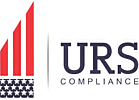NASCO History
NASCO History
The National Association of State Charity Officials (NASCO) was founded in 1972 as a nonprofit organization dedicated to promoting effective regulation and oversight of charitable organizations throughout the United States. It includes members from all 50 states, the District of Columbia, and several U.S. territories.
HistoryThe idea for NASCO began in the 1960s, when state officials recognized the need for a unified body to collaborate on charity oversight. That vision became a reality in 1972. Early goals included developing a model law to unify regulations across states and simplify compliance for national charities.
As the organization evolved, its mission expanded to include training, education, advocacy, and the sharing of regulatory best practices. NASCO began hosting conferences and working groups to help regulators stay informed and effective.
AchievementsOne of NASCO’s most impactful initiatives was the development of the Unified Registration Statement (URS). This standardized multistate filing form streamlines the registration process, reducing the burden on nonprofits operating across multiple states.
NASCO has also led the charge in preventing fraud within the nonprofit sector, promoting stronger regulations, and supporting efforts that ensure transparency, accountability, and donor protection.
In addition to policy efforts, NASCO provides education and training for charity regulators, supports regulatory innovation, and fosters a national community of collaboration in the sector.
ConclusionWith decades of experience and a commitment to strengthening charitable oversight, NASCO remains a respected voice in U.S. nonprofit regulation. Through innovation, education, and advocacy, it continues to support state charity officials and the organizations they regulate.
